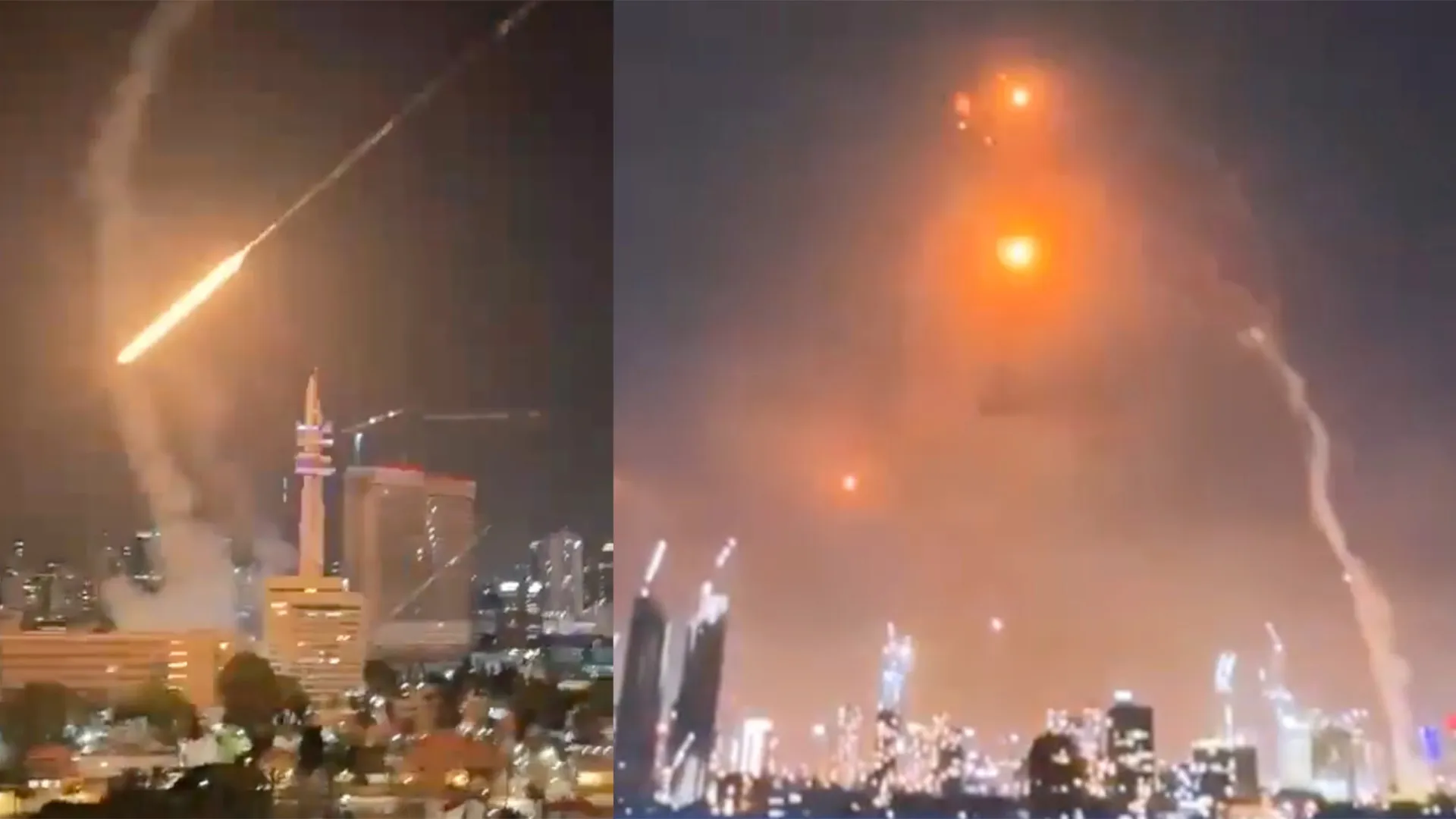On Friday, Iran launched a sustained missile counterattack against Israel in response to earlier Israeli strikes on Iranian nuclear sites. In what Tehran called “Operation True Promise III,” Iranian forces fired dozens of medium and long‑range ballistic missiles in several waves toward major Israeli cities, including Tel Aviv, Haifa and Nablus. The attack marked the largest retaliation so far in the spiraling confrontation between the two countries.
Iran’s Islamic Revolutionary Guard Corps announced the assault under the code name Operation True Promise III. The statement said that missile units near Shiraz and other locations fired scores of projectiles at military bases and airfields across Israel. Iranian state media quoted Supreme Leader Ayatollah Ali Khamenei, who vowed that Israel “will face full retribution” and warned that Iran would never forget the loss of its scientists and commanders in prior raids.
Earlier on Friday, Israeli jets struck key facilities within Iran’s nuclear program. The strikes damaged the Natanz enrichment plant, which houses centrifuges that produce uranium, and the Khondab heavy‑water reactor site used to make plutonium. Israel also targeted the Parchin military complex, long suspected of weapons research. According to Israeli officials, the raids halted uranium production and eliminated several high‑ranking scientists, including former Atomic Energy Organization head Fereydoon Abbasi and physicist Mohammad Mehdi Tehranchi.
Prime Minister Benjamin Netanyahu described the raids as a “precise military action to remove an imminent threat.” He claimed that Iran had amassed enough material for up to 15 nuclear weapons and cited that fact as justification for the preemptive strikes. The early‑morning operation took place without prior warning and briefly paused diplomatic talks between the United States and Iran on nuclear issues.
In reaction to the missile launch, Israel activated its multi‑layer air defense network. The system includes Iron Dome batteries to stop short‑range rockets, David’s Sling for mid‑range threats, and the Arrow system for high‑altitude, long‑range missiles. U.S. military personnel worked alongside their Israeli counterparts to track incoming warheads. Officials reported that the combined defenses intercepted about ninety‑nine percent of the more than three hundred missiles fired by Iran.
Despite the high interception rate, several missiles penetrated the defenses. In central Israel, fragments from intercepts caused damage to buildings and sparked fires. Residents in Tel Aviv reported broken windows and shattered facades on commercial blocks. Emergency services said that two people suffered critical injuries and dozens more received medical treatment for shrapnel wounds and panic‑related symptoms.
Magen David Adom, Israel’s national ambulance service, recorded forty‑one injured individuals. Among them, two sustained severe trauma, while four people experienced moderate wounds. The rest suffered light injuries or required psychological support after spending more than an hour in sealed rooms and public shelters. Air raid sirens blared across major cities, forcing commuters to abandon cars and seek refuge under concrete overpasses.
International air traffic felt the impact as well. Dubai International Airport halted departures to Europe and North America after multiple airlines diverted flights to avoid Iranian and Iraqi airspace. Flight cancellations and delays continued for several hours, affecting thousands of travelers across the Gulf region.
Analysts say this episode underscores the growing risk of a wider regional conflagration. They note that Iran’s decision to hit urban centers demonstrates a shift from symbolic warnings to direct military engagement. Conversely, Israel’s willingness to strike deeply into Iranian territory reveals its intent to dismantle Tehran’s nuclear potential by force if needed.
As both sides regroup, global diplomats urge restraint. The United Nations called an emergency meeting of the Security Council to discuss de‑escalation measures. Meanwhile, the United States reiterated its support for Israel’s right to defend itself, while also warning Iran against further aggression. For now, the region braces for possible new developments as leaders on both sides weigh their next moves.

